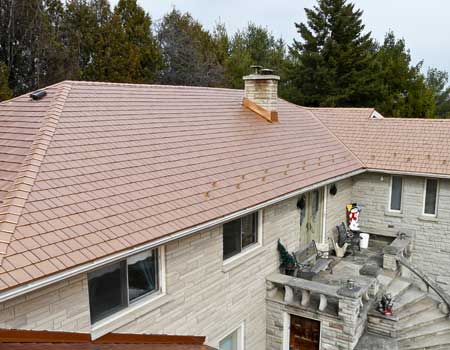2022 Tax Credits and Deductions Homeowners Should Take Advantage of ASAP
Many homeowners want to improve their homes but are hesitant because of the cost. Many tax credits and rebates can help you reduce your financial burden.
But with a substantial tax credit, making 2022 or 2023 home improvements is appealing. You should know that specific home improvement is eligible for tax credits or rebates. The Inflation Reduction Act was passed in August, and homeowners can claim tax credits and refunds up to 2022 for goods and services promoting clean and sustainable energy. Continue reading to learn more about tax credits, rebates, and the types of projects homeowners can save money on this year.
What is a tax credit, and what rebates are available?
Federal and state governments control tax credits to encourage energy-efficient home improvements. These credits are claimed by homeowners when they file their income taxes. A tax credit for solar panel installation can help homeowners get 30% back on their taxes. Homeowners can also claim energy credits and specific mortgage interest: private mortgage insurance, property taxes, and property taxes. Home buyers can declare discount points on a new mortgage. Visit the Desire website to find out which credit options are available. Unlike tax credits, local power companies or appliance manufacturers distribute tax rebates for energy-efficient appliances. The Inflation Reduction Act provides incentives that states can administer. Some rebates are deducted at purchase, while others are removed when you file taxes. Tax professionals can help identify these retroactive credits for each state.
While some tax credits and deductions are already in place for energy savings and home improvements, the Inflation Reduction Act of 2022 raises the bar for reducing energy consumption and emissions. The law offers tax credits and rebates up to $14,000 per household to reduce America’s carbon footprint. The act will take effect technically in 2023, but it will retroactively apply to homeowners who made qualifying energy improvements in 2022. Certain rebates and deductions depend on income, and taxpayers in the lowest income brackets can recover 100 percent of certain expenses. New rebates are available for qualified energy-efficient appliances and heating and cooling units. These rebate programs will be administered at the state level. You can check the White House’s Clean Energy for All for any updates if you are considering a significant home improvement or purchase.
Appliances
Energy Star-certified appliances use less energy than older, non-certified appliances. Their clothes washers use 20% less energy and 30% less water than regular models. The inflation Reduction Act offers tax relief for purchasing certified washers and dryers. The amount of relief homeowners will depend on income.
Some local power companies in Meredith, NH, offer rebates of up to $150-$400 on qualified refrigerators, freezers, and dishwashers. It’s worth looking at the Energy Star before shopping for appliances.
Doors, Windows, and Skylights
Homeowners here in New London, NH, get twice the compensation for replacing old, leaky skylights, windows, and doors. These improvements will be eligible for higher federal tax credits beginning next year. The Energy Efficient Home Improvement Credit, formerly the Non-business Energy Property Credit, has been renamed and will continue to last until 2032. It also includes a credit to improve home energy by up to 30% of the cost.
Energy-efficient exterior doors will be eligible for $250 per door and a maximum of $500 for all entries. The annual limit of 30 percent for qualifying skylights and windows is $600 per annum these improvements count towards the $1,200/annum limit.
Insulation
Inflation Reduction Act credits up to 10 percent of the costs of sealing and insulating your attic basement, walls, and foundation. The home insulation tax credit does not apply to installation costs, and the amount of credit homeowners are eligible for increases to 30% starting next year. These improvements should save you 15 percent yearly on energy bills and increase interior comfort by eliminating drafts.
Electronics
Energy Star states that an average American household has 24 consumer electronics products, accounting for approximately 12 percent of the household’s electricity consumption. Taxpayers can receive rebates of up to $150 for energy-efficient home electronics, and this includes televisions, digital media players, and computers.
Lighting
In 2020, Americans purchased more than 300 million Energy Star-certified bulbs. You may be eligible for a bonus from your local utility to switch to energy-efficient light fixtures and ceiling fans.
Before you shop for redecorating, review the “lighting & fans” section of the Energy Star Rebate Locator product list. To take advantage of local rebates on light fixtures, fans, and LED bulbs, enter your ZIP code and find out which green products could bring you some greenback.
CALL US: (603) 286-4414 OR CLICK TO EMAIL
Roofing
Consider installing an energy-efficient: Heating and cooling account for half of the household energy, which is why you can save substantial energy bills by replacing outdated furnaces and boilers with more efficient models. Some replacements are eligible for tax credits up to $150-300 and rebates up to $1,000. The Inflation Reduction act allows households to claim up to 30% of the cost of installing a super-efficient heat pump. This includes up to $2,000 in electric system upgrades costs and up to $4,000 in 2023. Low- and moderate-income buyers may be eligible for credit at the point of sale in 2023, which avoids the need to pay upfront.
Water heaters
Water heaters can be giant energy hogs, and water heaters can consume up to 12 percent of energy in a home. However, many modern water heaters are more efficient and save water and energy. Qualified heat pump water heaters and solar heaters are eligible for rebates of up to $1,000.
Retroactively to December 31, 2022, residential energy tax credits include $300 for homeowners who replace an older water heater with specific models of Energy Star-certified gas or oil heat pumps. The Inflation Reduction Act offers rebates for low-income households that can cover up to 100 percent of the cost of heat pump water heaters.
Home Office Equipment
Many people in Concord, NH, work remotely and have designated home offices. Individuals who work from home, whether they are self-employed or contract workers, are eligible for a tax deduction for their home office and certain equipment write-offs.
Telecommuting workers are no longer eligible for the deduction. Remote workers who buy specific monitors and computers may still be eligible for rebates of up to $15 from their local utility company.
Renewable Energy Sources
The inflation Reduction Act allows homeowners to get up to 30% off the cost of installing particular solar, wind, and other similar technologies in their homes. Some costs associated with batteries for renewable energy storage are covered by the solar tax credit 2022. Renewable energy credits do not have income restrictions and are retroactively available from January 1, 2022, through 2032.
Electric Vehicles
The Inflation Reduction Act allows buyers of certain electric cars to claim a tax credit. EV owners may receive up to $4,000 tax credit for a used vehicle and $7,500 for a brand-new electric vehicle. The distinction is currently included on your tax return. The credit will be issued by the dealer where you purchased the car when it is sold starting in 2024. The IRA also reinstated a credit of up to 30% of a home EV charging cost.
The new tax credit program does not apply to all-electric vehicles. You should verify that the vehicle you are interested in qualifies. There are specific requirements regarding final assembly and battery sourcing within North America, and this is to encourage domestic production. This act does not apply to everyone. Before you buy, make sure you check your income limits and determine the vehicle price limit.
Not-Required Home Improvements
The suspension of a lifetime credit is one of the best incentives under the Inflation Reduction Act. In the past, a taxpayer could only suspend a lifetime credit if they reached their maximum of $1200 in qualifying credits. With a $1,200 credit per year, the IRA allows you to replace items using more efficient alternatives.
The inflation Reduction Act provides tax credits of up to $4,000 for upgraded breakers box that are used to prepare for an all-electric home.
Electric Stoves
While many energy-efficient appliances are eligible for credits or rebates under the Inflation Reduction Act (IRA), electric induction stoves get special attention. Recent studies found that gas stove emissions have caused climate change and raised health concerns. Proper ventilation is one problem, but gas stoves emit up to three-quarters of the methane they produce when they aren’t in use.
Rebates up to $840 are available for homeowners who replace a gas stove or range with an electric cooktop or oven. To reduce the cost of switching from natural gas, propane, or electric cooking power to electric, the law provides an additional $500 credit.
Home Energy Audit
A home energy audit is an intelligent way to make informed decisions about tax credits, rebates, and how you spend your hard-earned cash. Identifying high energy consumption is easier if you need more smart-home features. For those who have had a home energy audit done by an inspector, the Inflation Reduction Act gives credit of up to $150.
A smart thermostat will allow you to control your heating and cooling energy and help you keep costs down over the long term. For those who buy and install smart thermostats, many energy companies offer $100 mail-in rebates.



